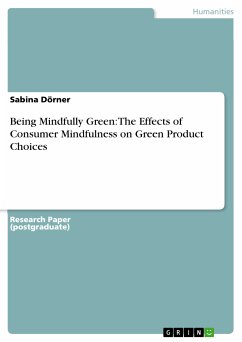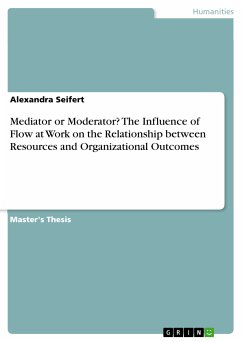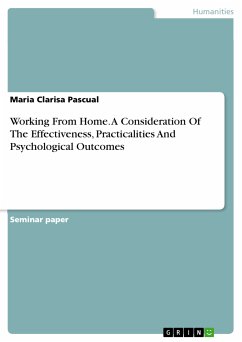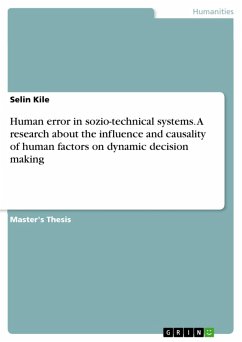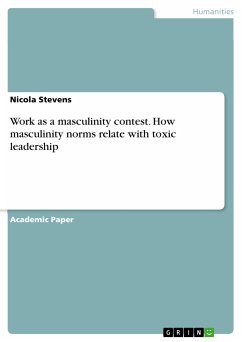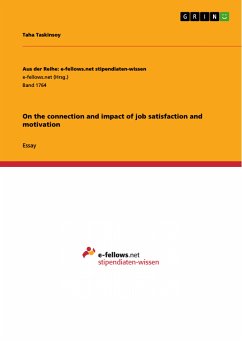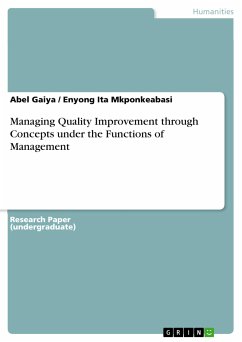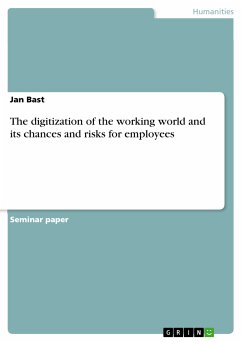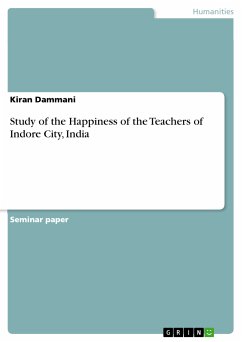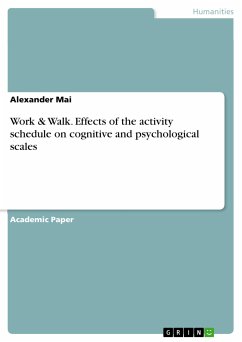
Work & Walk. Effects of the activity schedule on cognitive and psychological scales (eBook, PDF)

PAYBACK Punkte
0 °P sammeln!
Academic Paper from the year 2022 in the subject Psychology - Work, Business, Organisation, grade: 1,0, , language: English, abstract: In this paper, the question is asked whether the time of day of physical activity in the form of walking or otherwise during a typical workweek influences peoples responses to cognitive and psychological scales differently? To get to the bottom of this question, an observational study was conducted with six participants (n = 6). The participants work full-time from Monday to Friday and were sent a questionnaire to their test smartphone at 8pm every day. The que...
Academic Paper from the year 2022 in the subject Psychology - Work, Business, Organisation, grade: 1,0, , language: English, abstract: In this paper, the question is asked whether the time of day of physical activity in the form of walking or otherwise during a typical workweek influences peoples responses to cognitive and psychological scales differently? To get to the bottom of this question, an observational study was conducted with six participants (n = 6). The participants work full-time from Monday to Friday and were sent a questionnaire to their test smartphone at 8pm every day. The questionnaire contains different scales to measure three different dependent variables: well-being in the form of the MDMQ scale (Wilhelm and Schoebi 2007) - work engagement in the form of the UWES scale (Schaufeli et al. 2019) - attention vigilance in the form of the cognitive SART (Manly and Robertson 2005). It was found that subjective well-being increased significantly (.025) when participants were active at that day. The rest of the paper is structured as follows. In part two, the theoretical foundations and literature on well-being and physical activity are presented. The hypothesis derived from the literature is stated and elaborated. In part three, the methodology underlying the study is explained in detail. In addition, the results of the well-being dimension are presented. In part four, the methodology of the study is discussed. Within part four, limitations of the study are presented and an outlook on possible future research areas is given.
Dieser Download kann aus rechtlichen Gründen nur mit Rechnungsadresse in A, B, BG, CY, CZ, D, DK, EW, E, FIN, F, GR, HR, H, IRL, I, LT, L, LR, M, NL, PL, P, R, S, SLO, SK ausgeliefert werden.




